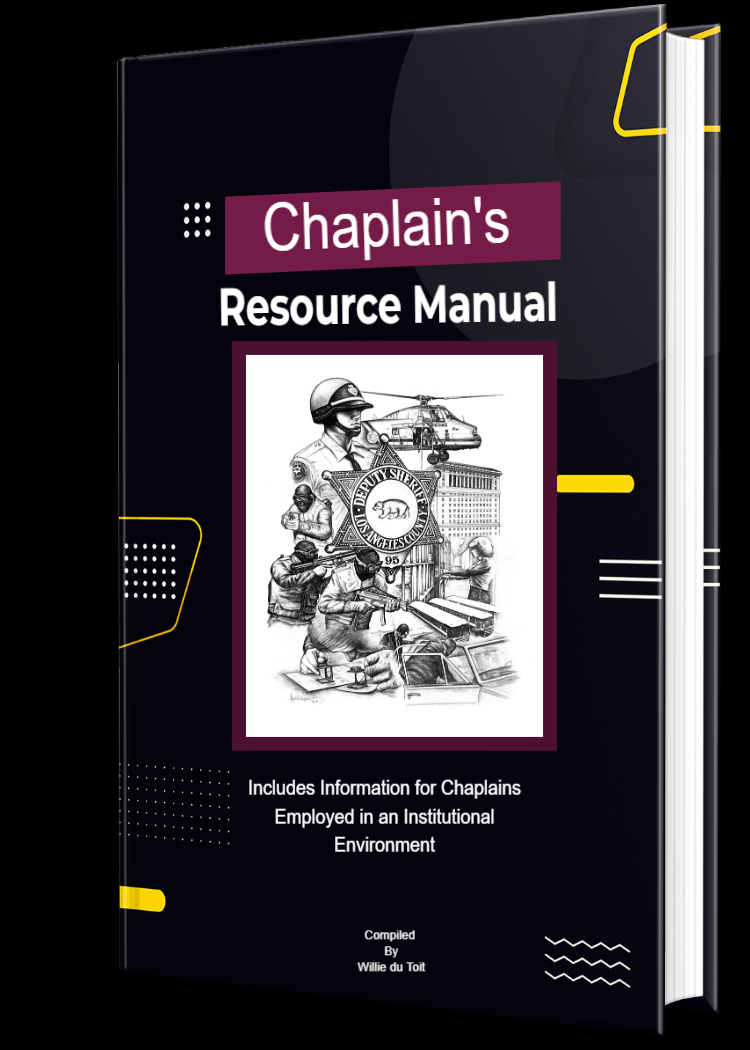Latest blogs

Created by - Willie Du Toit
Overcoming disappointments and setbacks
Overcoming Disappointment: A Guide to Turning Setbacks into Stepping StonesDisappointment is a universal human experience. We all face moments when things don't go our way, when our hopes are dashed, and when our expectations are left unfulfilled. While these feelings can be painful and even debilitating, it's important to remember that disappointment is not the end of the story. It's an opportunity for growth, resilience, and even a chance to re-evaluate our goals and priorities.This article will explore the nuances of disappointment, delve into effective strategies for overcoming it, and offer practical tips for turning setbacks into stepping stones on your journey to personal and professional success.Understanding DisappointmentDisappointment arises when there's a gap between what we hoped for or expected and what actually happened. It can be triggered by a variety of events, such as: Relationship Issues: When loved ones fail to meet our expectations, or when relationships end unexpectedly. Career Setbacks: When we don't get the promotion we desired, when a project fails, or when we experience rejection in our professional endeavors. Personal Goals: When we fail to achieve a personal goal, such as losing weight, learning a new skill, or completing a marathon. Unforeseen Circumstances: When events beyond our control disrupt our plans, like a sudden illness, a natural disaster, or a job loss. The intensity of our disappointment often depends on the significance of the event and our emotional investment in the outcome. The key to overcoming disappointment lies in understanding its root causes and developing healthy coping mechanisms.The Impact of DisappointmentDisappointment can have a significant impact on our mental and emotional well-being. It can lead to feelings of sadness, anger, frustration, and even despair. It can also affect our self-esteem, confidence, and our ability to move forward.Here are some common ways disappointment can manifest: Emotional Distress: Disappointment can trigger a range of negative emotions, including sadness, anger, frustration, and even resentment. Reduced Motivation: Disappointment can lead to a loss of motivation and a sense of apathy towards our goals and aspirations. Self-Criticism: We may engage in negative self-talk, blaming ourselves for the outcome and questioning our abilities. Withdrawal: We may withdraw from social interactions, isolating ourselves from loved ones and support systems. Physical Symptoms: Disappointment can manifest in physical symptoms such as fatigue, headaches, and changes in appetite. Strategies for Overcoming DisappointmentWhile disappointment is a challenging emotion, it's not an insurmountable obstacle. Here are some effective strategies for overcoming disappointment and moving forward:1. Acknowledge and Accept Your Feelings:The first step to overcoming disappointment is to acknowledge and accept your feelings. Don't try to suppress or ignore them. Allow yourself to feel the pain and sadness, but don't dwell on it. Tip: Journaling can be a helpful tool for processing your emotions. Write down your thoughts and feelings without judgment. 2. Don't Dwell on What Might Have Been:It's easy to get caught up in dwelling on what could have been. But focusing on the past only prolongs the pain. Instead, shift your attention to the present moment and focus on what you can control. Tip: Practice mindfulness exercises to help you stay present and grounded. 3. Re-evaluate Your Expectations:Disappointment often arises from unrealistic expectations. Take some time to reflect on your expectations and see if they were reasonable and attainable. Tip: Set realistic goals and break them down into smaller, manageable steps. 4. Practice Gratitude:Focusing on gratitude can help shift your perspective and remind you of the good things in your life. Even amidst disappointment, there are likely things to be thankful for. Tip: Keep a gratitude journal and write down three things you're grateful for each day. 5. Find Meaning in the Experience:Disappointment can be a catalyst for growth and learning. Ask yourself what you can learn from the experience and how you can use it to move forward. Tip: Consider the lessons you can take away from the situation and how you can apply them to future endeavors. 6. Seek Support:Don't hesitate to reach out to friends, family, or a therapist for support. Talking to someone you trust can help you process your emotions and gain perspective. Tip: Join a support group or online forum for people who have experienced similar disappointments. 7. Focus on Your Strengths:Disappointment can sometimes make us focus on our weaknesses. Instead, take time to reflect on your strengths and accomplishments. Tip: Make a list of your strengths and achievements and review it when you're feeling down. 8. Take Action:One of the best ways to overcome disappointment is to take action. Focus your energy on positive steps you can take to move forward. Tip: Set new goals, pursue new opportunities, and engage in activities that bring you joy and fulfillment. 9. Practice Self-Compassion:Be kind to yourself during this challenging time. Remember that everyone experiences disappointment, and it's okay to feel down. Tip: Treat yourself with the same compassion and understanding that you would offer to a friend going through a difficult time. 10. Seek Professional Help:If you're struggling to cope with disappointment or if it's significantly impacting your life, don't hesitate to seek professional help from a therapist or counselor. Tip: There are many resources available online and in your community to help you find a qualified mental health professional. Turning Setbacks into Stepping StonesOvercoming disappointment is not about erasing the pain or pretending it didn't happen. It's about learning from the experience, growing stronger, and moving forward with a renewed sense of purpose. By embracing the lessons learned, we can turn setbacks into stepping stones on our path to personal and professional growth.Here are some practical ways to turn setbacks into stepping stones: Identify the Underlying Cause: Analyze the situation and understand the root cause of your disappointment. Was it a lack of preparation, unrealistic expectations, or external circumstances? Reframe Your Perspective: Instead of focusing on what you lost, consider what you gained from the experience. Did you learn new skills, develop resilience, or gain valuable insights? Seek New Opportunities: Use the disappointment as a catalyst to explore new opportunities and pursue different paths. Embrace the Unexpected: Disappointment can sometimes lead us to unexpected and fulfilling paths. Be open to new experiences and embrace the unknown. ConclusionDisappointment is an inevitable part of life, but it's not a defining moment. By embracing the strategies outlined in this article, you can overcome disappointment, learn from your experiences, and emerge stronger and more resilient. Remember that setbacks are not failures, but opportunities for growth. Embrace the challenge, learn from the experience, and continue to strive for your goals with renewed determination.FAQQ: How long does it take to overcome disappointment?A: There's no one-size-fits-all answer to this question. The time it takes to overcome disappointment varies depending on the individual, the severity of the disappointment, and the support system available. It's essential to be patient with yourself and allow yourself time to heal and process your emotions.Q: How do I know if I need professional help?A: If your disappointment is causing significant distress, affecting your daily life, or interfering with your ability to function, seeking professional help from a therapist or counselor is a wise decision.Q: What if I keep experiencing disappointment?A: If you find yourself repeatedly experiencing disappointment, it might be helpful to explore underlying issues such as low self-esteem, unrealistic expectations, or a pattern of negative thinking. A therapist can help you address these issues and develop healthier coping mechanisms.Q: How can I prevent disappointment in the future?A: While you can't completely prevent disappointment, you can minimize its impact by setting realistic expectations, focusing on what you can control, and developing a positive mindset. It's also helpful to cultivate a strong support system and practice self-care to build resilience and emotional well-being.
More detailsPublished - Thu, 03 Oct 2024

Created by - Willie Du Toit
"Nurturing the Soul: Understanding the Vital Role of Career Development for Chaplains"
Chaplains play a crucial role in providing spiritual and emotional support to individuals in various settings, including hospitals, prisons, and the military. Often referred to as the "ministers of the soul," chaplains are called upon to offer comfort and guidance to those in need during times of crisis and uncertainty. However, the importance of career development for chaplains is often overlooked.Career development is essential for chaplains to not only enhance their skills and knowledge but also to nourish their spirits. Just as they are entrusted with caring for the souls of others, chaplains must also prioritize their personal growth and development. This is where career development comes into play.One of the key reasons why career development is crucial for chaplains is that it helps them stay current with the latest trends and best practices in the field of spiritual care. As the needs of those they serve evolve, chaplains must also evolve to effectively meet those needs. By attending professional development workshops, seminars, and conferences, chaplains can stay abreast of new techniques and approaches to spiritual care.Career development also allows chaplains to deepen their understanding of their faith and spirituality. Through continued education and self-reflection, chaplains can strengthen their belief systems and deepen their connection to the divine. This, in turn, enables them to better connect with and support those in their care.Furthermore, career development provides chaplains with a sense of purpose and fulfillment in their work. By investing in their professional growth, chaplains demonstrate a commitment to excellence and a dedication to the well-being of those they serve. This not only enhances their job satisfaction but also contributes to the overall effectiveness of their ministry.Let us briefly look at some areas of development for Chaplains on their journey toward maturity and efficiency:1. Emotional intelligence: Chaplains must possess a high level of emotional intelligence to effectively support and connect with individuals in times of crisis and need. This includes self-awareness, self-regulation, empathy, and strong people skills.2. Communication skills: Chaplains must be skilled communicators, able to effectively listen, speak, and write clearly, compassionate, and supportive. They must also be able to communicate cross-culturally and across religious and spiritual beliefs.3. Spiritual development: Chaplains must have a solid foundation in their own spiritual beliefs and practices in order to support others on their spiritual journeys. This includes ongoing personal reflection, study, and growth.4. Cultural competency: Chaplains must be culturally competent, understanding and respecting the diverse beliefs, practices, and values of the individuals they serve. This includes awareness of different religious traditions, customs, and rituals.5. Crisis intervention skills: Chaplains must be trained in crisis intervention techniques and can provide emotional and spiritual support to individuals in times of crisis, such as illness, loss, or trauma.6. Conflict resolution skills: Chaplains must be skilled in conflict resolution and able to effectively mediate and facilitate communication between individuals in conflict, as well as provide guidance and support in resolving disputes.7. Ethics and boundaries: Chaplains must have a strong understanding of ethical standards and boundaries to maintain professionalism and confidentiality in their work, as well as to navigate complex ethical dilemmas that may arise.8. Self-care: Chaplains must prioritize self-care in order to maintain their own emotional, spiritual, and physical well-being. This includes setting boundaries, seeking supervision and support, and engaging in activities that nourish and replenish their spirits.9. Continued education and training: Chaplains must be committed to ongoing education and training to stay current on best practices, research, and trends in the field of spiritual care. This may include pursuing advanced certifications, attending conferences, or participating in peer supervision groups.10. Collaboration and networking: Chaplains must be skilled collaborators, able to work effectively with interdisciplinary teams and community partners to provide holistic care to individuals and families. They must also be able to build and maintain professional relationships to advocate for the spiritual needs of those they serve.In conclusion, career development plays a vital role in the life of chaplains. By nurturing their souls and investing in their professional growth, chaplains can better serve those in need and make a lasting impact on the lives of others. Prioritizing career development is not only beneficial for chaplains themselves but also for the individuals and communities they support.
More detailsPublished - Fri, 27 Sep 2024

Created by - Willie Du Toit
"The Power of Partnerships: Strengthening Non-Profit Chaplaincy Organizations"
In the world of non-profit chaplaincy organizations, partnerships play a crucial role in ensuring the success and sustainability of our work. These partnerships provide us with the resources, support, and connections needed to effectively serve our communities and fulfill our mission.One of the key reasons why partnerships are essential for our non-profit chaplaincy organizations is the access to additional resources and funding. By collaborating with other organizations, businesses, and individuals, we can secure financial support, in-kind donations, and grants that enable us to expand our programs and reach more people in need.Partnerships also allow us to leverage the strengths and expertise of other organizations to enhance our own services. By working together with like-minded organizations, we can share best practices, collaborate on projects, and learn from each other's experiences to improve the quality of care we provide to our communities.Furthermore, partnerships help us to increase our visibility and reach within the community. By joining forces with other organizations, we can amplify our message and reach a broader audience, ultimately increasing our impact and influence in the communities we serve.Overall, partnerships are crucial for the success of non-profit chaplaincy organizations. By building strong collaborations with other organizations, businesses, and individuals, we can access the resources, support, and connections needed to effectively serve our communities and make a difference in the lives of those we support. Let's continue to foster these partnerships and work together towards our common goal of providing compassionate care and support to those in need.Let us as a community work together to ensure the continuation of our Chaplaincy services through partnerships, sponsorships, and donors that will come alongside us, and strengthen us on our quest to bring spiritual and emotional care to those affected by traumatic incidents, accidents, and occurrences within our communities.Cobi is a registered Non-Profit Company with registration number 2012/208030/08 with the sole purpose of providing free care to our communities when in need.For the sake of donations, here is the official banking details of the Chaplain on Board Initiative - NPCAccount Name: The Chaplain on Board Initiative NPCAccount Number: 4108455254 - CurrentBranch Code: 632005
More detailsPublished - Fri, 27 Sep 2024

Created by - Willie Du Toit
Learn for Life as you journey with us.
"The Chaplain's Corner: A Training Platform for Accredited and Ordained Cobi Chaplains seeking further Education, Continuous Development, and Career Building"As we strive to serve our community and support those in need, our chaplains must be equipped with the necessary education and skills to fulfill their roles effectively. That is why we are excited to announce the launch of a new training platform specifically designed for accredited and ordained Cobi chaplains.This platform will offer a wide range of courses aimed at providing further education, continuous development, and career-building opportunities for our chaplains. Whether you are looking to expand your knowledge in pastoral care, gain expertise in counseling, or enhance your leadership skills, there will be courses available to suit your needs.By enrolling in these courses, chaplains will have the opportunity to deepen their understanding of spirituality, theology, and ethics, while also developing practical skills that will enable them to better support individuals in times of crisis and need. Additionally, the platform will provide a space for chaplains to connect, share best practices, and receive mentorship from experienced professionals in the field.We believe that investing in the education and training of our chaplains is essential to providing the highest level of care and support to those in our community. We are committed to empowering our chaplains to grow both personally and professionally, and we are confident that this new training platform will be a valuable resource in achieving that goal.We encourage all accredited and ordained Cobi chaplains to take advantage of this opportunity for further education and career development. Together, we can continue to make a positive impact in the lives of those we serve. Stay tuned for more information on how to access this exciting new training platform.
More detailsPublished - Fri, 27 Sep 2024
Popular blogs

Created by - Willie Du Toit
Overcoming disappointments and setbacks
Overcoming Disappointment: A Guide to Turning Setbacks into Stepping StonesDisappointment is a universal human experience. We all face moments when things don't go our way, when our hopes are dashed, and when our expectations are left unfulfilled. While these feelings can be painful and even debilitating, it's important to remember that disappointment is not the end of the story. It's an opportunity for growth, resilience, and even a chance to re-evaluate our goals and priorities.This article will explore the nuances of disappointment, delve into effective strategies for overcoming it, and offer practical tips for turning setbacks into stepping stones on your journey to personal and professional success.Understanding DisappointmentDisappointment arises when there's a gap between what we hoped for or expected and what actually happened. It can be triggered by a variety of events, such as: Relationship Issues: When loved ones fail to meet our expectations, or when relationships end unexpectedly. Career Setbacks: When we don't get the promotion we desired, when a project fails, or when we experience rejection in our professional endeavors. Personal Goals: When we fail to achieve a personal goal, such as losing weight, learning a new skill, or completing a marathon. Unforeseen Circumstances: When events beyond our control disrupt our plans, like a sudden illness, a natural disaster, or a job loss. The intensity of our disappointment often depends on the significance of the event and our emotional investment in the outcome. The key to overcoming disappointment lies in understanding its root causes and developing healthy coping mechanisms.The Impact of DisappointmentDisappointment can have a significant impact on our mental and emotional well-being. It can lead to feelings of sadness, anger, frustration, and even despair. It can also affect our self-esteem, confidence, and our ability to move forward.Here are some common ways disappointment can manifest: Emotional Distress: Disappointment can trigger a range of negative emotions, including sadness, anger, frustration, and even resentment. Reduced Motivation: Disappointment can lead to a loss of motivation and a sense of apathy towards our goals and aspirations. Self-Criticism: We may engage in negative self-talk, blaming ourselves for the outcome and questioning our abilities. Withdrawal: We may withdraw from social interactions, isolating ourselves from loved ones and support systems. Physical Symptoms: Disappointment can manifest in physical symptoms such as fatigue, headaches, and changes in appetite. Strategies for Overcoming DisappointmentWhile disappointment is a challenging emotion, it's not an insurmountable obstacle. Here are some effective strategies for overcoming disappointment and moving forward:1. Acknowledge and Accept Your Feelings:The first step to overcoming disappointment is to acknowledge and accept your feelings. Don't try to suppress or ignore them. Allow yourself to feel the pain and sadness, but don't dwell on it. Tip: Journaling can be a helpful tool for processing your emotions. Write down your thoughts and feelings without judgment. 2. Don't Dwell on What Might Have Been:It's easy to get caught up in dwelling on what could have been. But focusing on the past only prolongs the pain. Instead, shift your attention to the present moment and focus on what you can control. Tip: Practice mindfulness exercises to help you stay present and grounded. 3. Re-evaluate Your Expectations:Disappointment often arises from unrealistic expectations. Take some time to reflect on your expectations and see if they were reasonable and attainable. Tip: Set realistic goals and break them down into smaller, manageable steps. 4. Practice Gratitude:Focusing on gratitude can help shift your perspective and remind you of the good things in your life. Even amidst disappointment, there are likely things to be thankful for. Tip: Keep a gratitude journal and write down three things you're grateful for each day. 5. Find Meaning in the Experience:Disappointment can be a catalyst for growth and learning. Ask yourself what you can learn from the experience and how you can use it to move forward. Tip: Consider the lessons you can take away from the situation and how you can apply them to future endeavors. 6. Seek Support:Don't hesitate to reach out to friends, family, or a therapist for support. Talking to someone you trust can help you process your emotions and gain perspective. Tip: Join a support group or online forum for people who have experienced similar disappointments. 7. Focus on Your Strengths:Disappointment can sometimes make us focus on our weaknesses. Instead, take time to reflect on your strengths and accomplishments. Tip: Make a list of your strengths and achievements and review it when you're feeling down. 8. Take Action:One of the best ways to overcome disappointment is to take action. Focus your energy on positive steps you can take to move forward. Tip: Set new goals, pursue new opportunities, and engage in activities that bring you joy and fulfillment. 9. Practice Self-Compassion:Be kind to yourself during this challenging time. Remember that everyone experiences disappointment, and it's okay to feel down. Tip: Treat yourself with the same compassion and understanding that you would offer to a friend going through a difficult time. 10. Seek Professional Help:If you're struggling to cope with disappointment or if it's significantly impacting your life, don't hesitate to seek professional help from a therapist or counselor. Tip: There are many resources available online and in your community to help you find a qualified mental health professional. Turning Setbacks into Stepping StonesOvercoming disappointment is not about erasing the pain or pretending it didn't happen. It's about learning from the experience, growing stronger, and moving forward with a renewed sense of purpose. By embracing the lessons learned, we can turn setbacks into stepping stones on our path to personal and professional growth.Here are some practical ways to turn setbacks into stepping stones: Identify the Underlying Cause: Analyze the situation and understand the root cause of your disappointment. Was it a lack of preparation, unrealistic expectations, or external circumstances? Reframe Your Perspective: Instead of focusing on what you lost, consider what you gained from the experience. Did you learn new skills, develop resilience, or gain valuable insights? Seek New Opportunities: Use the disappointment as a catalyst to explore new opportunities and pursue different paths. Embrace the Unexpected: Disappointment can sometimes lead us to unexpected and fulfilling paths. Be open to new experiences and embrace the unknown. ConclusionDisappointment is an inevitable part of life, but it's not a defining moment. By embracing the strategies outlined in this article, you can overcome disappointment, learn from your experiences, and emerge stronger and more resilient. Remember that setbacks are not failures, but opportunities for growth. Embrace the challenge, learn from the experience, and continue to strive for your goals with renewed determination.FAQQ: How long does it take to overcome disappointment?A: There's no one-size-fits-all answer to this question. The time it takes to overcome disappointment varies depending on the individual, the severity of the disappointment, and the support system available. It's essential to be patient with yourself and allow yourself time to heal and process your emotions.Q: How do I know if I need professional help?A: If your disappointment is causing significant distress, affecting your daily life, or interfering with your ability to function, seeking professional help from a therapist or counselor is a wise decision.Q: What if I keep experiencing disappointment?A: If you find yourself repeatedly experiencing disappointment, it might be helpful to explore underlying issues such as low self-esteem, unrealistic expectations, or a pattern of negative thinking. A therapist can help you address these issues and develop healthier coping mechanisms.Q: How can I prevent disappointment in the future?A: While you can't completely prevent disappointment, you can minimize its impact by setting realistic expectations, focusing on what you can control, and developing a positive mindset. It's also helpful to cultivate a strong support system and practice self-care to build resilience and emotional well-being.
More detailsPublished - Thu, 03 Oct 2024

Created by - Willie Du Toit
"Nurturing the Soul: Understanding the Vital Role of Career Development for Chaplains"
Chaplains play a crucial role in providing spiritual and emotional support to individuals in various settings, including hospitals, prisons, and the military. Often referred to as the "ministers of the soul," chaplains are called upon to offer comfort and guidance to those in need during times of crisis and uncertainty. However, the importance of career development for chaplains is often overlooked.Career development is essential for chaplains to not only enhance their skills and knowledge but also to nourish their spirits. Just as they are entrusted with caring for the souls of others, chaplains must also prioritize their personal growth and development. This is where career development comes into play.One of the key reasons why career development is crucial for chaplains is that it helps them stay current with the latest trends and best practices in the field of spiritual care. As the needs of those they serve evolve, chaplains must also evolve to effectively meet those needs. By attending professional development workshops, seminars, and conferences, chaplains can stay abreast of new techniques and approaches to spiritual care.Career development also allows chaplains to deepen their understanding of their faith and spirituality. Through continued education and self-reflection, chaplains can strengthen their belief systems and deepen their connection to the divine. This, in turn, enables them to better connect with and support those in their care.Furthermore, career development provides chaplains with a sense of purpose and fulfillment in their work. By investing in their professional growth, chaplains demonstrate a commitment to excellence and a dedication to the well-being of those they serve. This not only enhances their job satisfaction but also contributes to the overall effectiveness of their ministry.Let us briefly look at some areas of development for Chaplains on their journey toward maturity and efficiency:1. Emotional intelligence: Chaplains must possess a high level of emotional intelligence to effectively support and connect with individuals in times of crisis and need. This includes self-awareness, self-regulation, empathy, and strong people skills.2. Communication skills: Chaplains must be skilled communicators, able to effectively listen, speak, and write clearly, compassionate, and supportive. They must also be able to communicate cross-culturally and across religious and spiritual beliefs.3. Spiritual development: Chaplains must have a solid foundation in their own spiritual beliefs and practices in order to support others on their spiritual journeys. This includes ongoing personal reflection, study, and growth.4. Cultural competency: Chaplains must be culturally competent, understanding and respecting the diverse beliefs, practices, and values of the individuals they serve. This includes awareness of different religious traditions, customs, and rituals.5. Crisis intervention skills: Chaplains must be trained in crisis intervention techniques and can provide emotional and spiritual support to individuals in times of crisis, such as illness, loss, or trauma.6. Conflict resolution skills: Chaplains must be skilled in conflict resolution and able to effectively mediate and facilitate communication between individuals in conflict, as well as provide guidance and support in resolving disputes.7. Ethics and boundaries: Chaplains must have a strong understanding of ethical standards and boundaries to maintain professionalism and confidentiality in their work, as well as to navigate complex ethical dilemmas that may arise.8. Self-care: Chaplains must prioritize self-care in order to maintain their own emotional, spiritual, and physical well-being. This includes setting boundaries, seeking supervision and support, and engaging in activities that nourish and replenish their spirits.9. Continued education and training: Chaplains must be committed to ongoing education and training to stay current on best practices, research, and trends in the field of spiritual care. This may include pursuing advanced certifications, attending conferences, or participating in peer supervision groups.10. Collaboration and networking: Chaplains must be skilled collaborators, able to work effectively with interdisciplinary teams and community partners to provide holistic care to individuals and families. They must also be able to build and maintain professional relationships to advocate for the spiritual needs of those they serve.In conclusion, career development plays a vital role in the life of chaplains. By nurturing their souls and investing in their professional growth, chaplains can better serve those in need and make a lasting impact on the lives of others. Prioritizing career development is not only beneficial for chaplains themselves but also for the individuals and communities they support.
More detailsPublished - Fri, 27 Sep 2024

Created by - Willie Du Toit
"The Power of Partnerships: Strengthening Non-Profit Chaplaincy Organizations"
In the world of non-profit chaplaincy organizations, partnerships play a crucial role in ensuring the success and sustainability of our work. These partnerships provide us with the resources, support, and connections needed to effectively serve our communities and fulfill our mission.One of the key reasons why partnerships are essential for our non-profit chaplaincy organizations is the access to additional resources and funding. By collaborating with other organizations, businesses, and individuals, we can secure financial support, in-kind donations, and grants that enable us to expand our programs and reach more people in need.Partnerships also allow us to leverage the strengths and expertise of other organizations to enhance our own services. By working together with like-minded organizations, we can share best practices, collaborate on projects, and learn from each other's experiences to improve the quality of care we provide to our communities.Furthermore, partnerships help us to increase our visibility and reach within the community. By joining forces with other organizations, we can amplify our message and reach a broader audience, ultimately increasing our impact and influence in the communities we serve.Overall, partnerships are crucial for the success of non-profit chaplaincy organizations. By building strong collaborations with other organizations, businesses, and individuals, we can access the resources, support, and connections needed to effectively serve our communities and make a difference in the lives of those we support. Let's continue to foster these partnerships and work together towards our common goal of providing compassionate care and support to those in need.Let us as a community work together to ensure the continuation of our Chaplaincy services through partnerships, sponsorships, and donors that will come alongside us, and strengthen us on our quest to bring spiritual and emotional care to those affected by traumatic incidents, accidents, and occurrences within our communities.Cobi is a registered Non-Profit Company with registration number 2012/208030/08 with the sole purpose of providing free care to our communities when in need.For the sake of donations, here is the official banking details of the Chaplain on Board Initiative - NPCAccount Name: The Chaplain on Board Initiative NPCAccount Number: 4108455254 - CurrentBranch Code: 632005
More detailsPublished - Fri, 27 Sep 2024

Created by - Willie Du Toit
Learn for Life as you journey with us.
"The Chaplain's Corner: A Training Platform for Accredited and Ordained Cobi Chaplains seeking further Education, Continuous Development, and Career Building"As we strive to serve our community and support those in need, our chaplains must be equipped with the necessary education and skills to fulfill their roles effectively. That is why we are excited to announce the launch of a new training platform specifically designed for accredited and ordained Cobi chaplains.This platform will offer a wide range of courses aimed at providing further education, continuous development, and career-building opportunities for our chaplains. Whether you are looking to expand your knowledge in pastoral care, gain expertise in counseling, or enhance your leadership skills, there will be courses available to suit your needs.By enrolling in these courses, chaplains will have the opportunity to deepen their understanding of spirituality, theology, and ethics, while also developing practical skills that will enable them to better support individuals in times of crisis and need. Additionally, the platform will provide a space for chaplains to connect, share best practices, and receive mentorship from experienced professionals in the field.We believe that investing in the education and training of our chaplains is essential to providing the highest level of care and support to those in our community. We are committed to empowering our chaplains to grow both personally and professionally, and we are confident that this new training platform will be a valuable resource in achieving that goal.We encourage all accredited and ordained Cobi chaplains to take advantage of this opportunity for further education and career development. Together, we can continue to make a positive impact in the lives of those we serve. Stay tuned for more information on how to access this exciting new training platform.
More detailsPublished - Fri, 27 Sep 2024
Search
Popular categories
Career Development for Chaplains
4Latest blogs

Overcoming disappointments and setbacks
Thu, 03 Oct 2024

"Nurturing the Soul: Understanding the Vital Role of Career Development for Chaplains"
Fri, 27 Sep 2024

"The Power of Partnerships: Strengthening Non-Profit Chaplaincy Organizations"
Fri, 27 Sep 2024
Write a public review